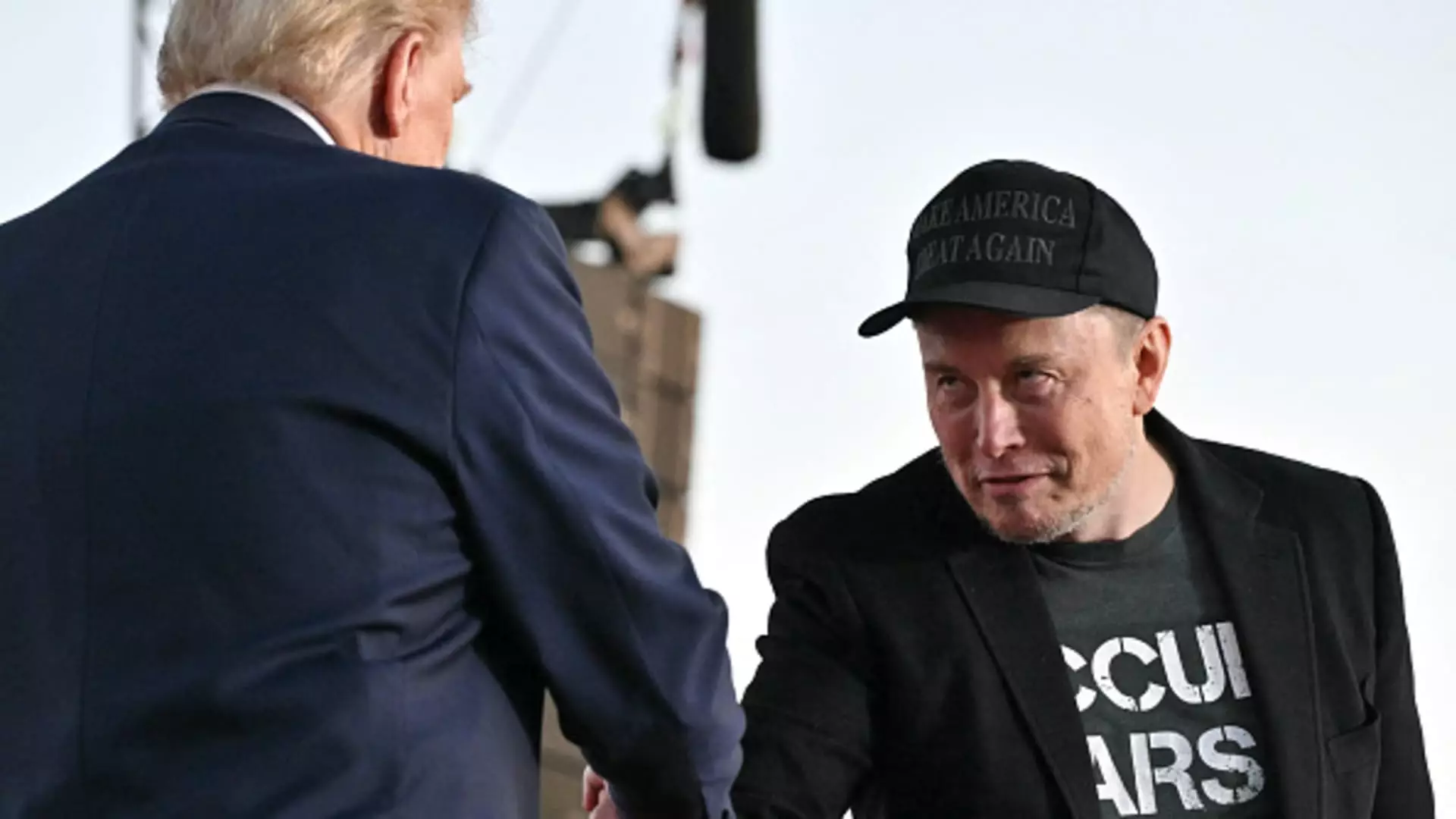In a political climate marked by unconventional alliances and outspoken personalities, the recent interactions between Tesla and SpaceX CEO Elon Musk and former President Donald Trump exemplify a troubling trend regarding the independence of the Federal Reserve. Musk’s endorsement of President Trump’s inclination to have a say in Federal Reserve policies raises significant questions about the future of U.S. monetary policy and the implications of such a shift in authority.
Musk’s agreement with Senator Mike Lee’s call for Federal Reserve oversight by the president, as reflected by his use of the “100” emoji on social media, signals a potentially profound alteration in the relationship between the government and the central bank. This public display of support indicates a readiness among influential figures to challenge the long-held tradition of Federal Reserve independence. The repercussions of such a shift could be far-reaching, undermining the foundational belief that monetary policy should be insulated from political pressures and short-term interests.
The Risks of Political Interference
The notion that a sitting president should have direct influence over the Federal Reserve is reminiscent of historical precedents where political motives distorted economic stability. The independence of the Fed has been crucial in safeguarding against inflationary pressures and market manipulations that could be driven by political agendas. When monetary policy aligns too closely with political interests, the risk of harm to the broader economy increases considerably.
Former Fed Chair Jerome Powell’s refusal to resign upon President Trump’s hypothetical request illuminates the potential for renewed conflicts between the central bank and the White House. Trump has a history of publicly criticizing Powell and the decisions made by the Fed, and his previous term in office was characterized by attempts to sway monetary policy toward his political goals. As the 2024 presidential election cycle unfolds, the likelihood of similar confrontations is heightened, especially with Trump voicing the belief that a president should have an influential role in Fed operations.
Implications for the Economy
If President Trump were to regain office and implement his vision of a more hands-on approach regarding the Fed, it could trigger significant volatility in financial markets. Investors generally favor a predictable and independent central bank that makes decisions based on uncompromised economic analysis rather than succumbing to political whims. Thus, a perceived loss of independence at the Fed would not only erode market confidence but could also lead to economic instability.
The broader consequences of this potential shift are particularly concerning in an uncertain economic environment. As issues like inflation rate variability and unemployment remain hot-button topics, the risks of politicizing monetary policy threaten the ability of the Fed to respond effectively to real-time economic challenges. Simply put, when the Fed’s credibility is compromised, the risks to economic recovery and growth become magnified.
In sum, the interplay between political figures like Elon Musk and Donald Trump regarding the Federal Reserve reflects a growing trend that could jeopardize the institution’s independence. As we navigate through intricate economic landscapes, it is crucial for our leaders to recognize the importance of maintaining a separate and impartial central bank that prioritizes long-term economic health over short-term political gains. The strength of the U.S. economy relies on such integrity, making it imperative for all stakeholders to advocate for the preservation of this essential independence. The fate of our financial future may well depend on it.


Leave a Reply